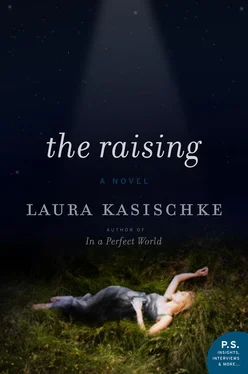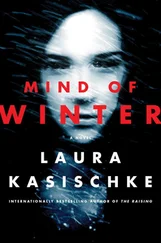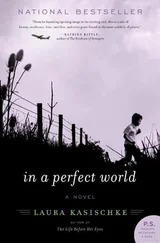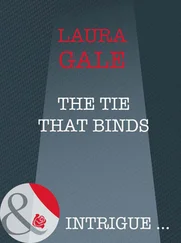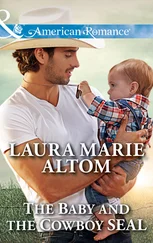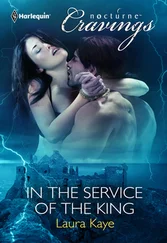“So…” He waved his right hand through the air while holding on to the towel at his waist with the left.
“So…?” she said. She tossed the magazine onto the floor, and then swung her legs off the side of the bed and stood up. He felt the perfumey breeze of her pass him as she made her way barefoot to the door and locked it before turning back around. She stumbled sideways then, but caught herself on the edge of Craig’s desk, and laughed, and then slid down it and sat hard on the floor with her ankles tucked under her butt.
“How drunk are you?” Craig asked.
“Just a”—she held her thumb and index finger an inch apart—“drunk,” and then she held her arms up to him like a little kid wanting to be picked up.
“Josie,” Craig said. “I’m wearing a towel.”
“Take off the towel!”
“I think you’re more than a little drunk,” he said.
“I flunked,” she said. “I know it. Didn’t even study.” She made the motion of erasing something on a blackboard in front of her. “ Shupe .”
“Probably you didn’t,” he said. “You probably did better than you think you did.” He had no idea if this was true or not, but what else was he going to say?
She started moving toward him on her knees then, and he backed up a couple of steps, but then she got on her hands, too, and scrambled toward him, grabbing his ankles.
“Shit, Josie,” Craig said, sort of dancing away from her, but she was holding on tight. “Cut it out. It tickles. Shit.”
He couldn’t help laughing. It really did tickle. She was laughing, too, and spidering her way up his legs to his towel, and then she was standing with her whole clothed body pressed against his whole naked one, with her tongue in his mouth and his hair in her hands, and despite his reservations (honestly, he just wanted to find Lucas and get stoned), his dick was fully into it within half a second of the kiss, and then she had her hand on that and her mouth on his neck, and she was pulling him backward onto his bed.
Perry saw her coming out of Starbucks with a cup in each hand, and he ducked around the corner. The last person he wanted to see right now was Josie Reilly. The last time he’d seen her was in May, the end of the semester, at a memorial tree-planting ceremony for Nicole.
An entire orchard of cherry trees paid for by Omega Theta Tau had been planted around the sorority in Nicole’s honor. A backhoe dug the holes, and then dropped the trees one by one into the soft earth. A crowd gathered to sing and pray all day, and then there was a candlelight vigil all night. There were eighteen trees, one for each of Nicole Werner’s years. Their branches were actually in bloom.
(“Do you know how expensive it is to plant an orchard of almost full-grown trees in bloom ?” he’d overheard one student at Godwin Hall say to another over soggy pancakes that morning. There were a few bad jokes made about cherries, and the whole virgin rumor, with regard to the Omega Theta Tau house in general, and Nicole in particular.)
Somehow, in the crowd during the candlelight vigil, Josie had found him, snuggled up to him, and whispered dramatically, “She’s still with us, Perry. Can you feel it? She isn’t dead.”
He’d backed away.
“What’s with you?” she’d asked, offended, but he just shook his head, and she moved on to someone else. The candle some sorority girl had handed him in a waxed cup sputtered out. A few minutes later, when they started singing “The Wind Beneath My Wings,” he tossed the waxed cup into a trash can and headed back to Godwin Hall.
Josie had hardly known Nicole, but you wouldn’t have known that from all the mileage she got out of having been the dead girl’s roommate and sorority sister for six months. She’d read a putrid poem at the memorial service, been interviewed for the newspaper, worn a tight T-shirt with Nicole’s photo on it and a black armband all through April and into May, and managed to be excused not only from finals but also from having to turn in her essay for Classical Sources of Modern Culture because she was organizing the petition to expel Craig Clements-Rabbitt from the university:
“Drunk + Driver + Death = Murder.”
She went to Houston, Perry learned from the school newspaper, to speak to the annual SADD convention “in memory of my best friend, who was murdered by a drunk driver.”
To Perry, she apologized for whoever had splashed his and Craig’s door with red paint and plastered that sad senior portrait of Nicole at the center of it:
“Nobody blames you for anything, Perry,” she’d said. “We all know you just had the bad luck of being his roommate.”
“He’s not even here ,” Perry said. “Why are people messing with my door?”
“It’s symbolic. You have to understand that.”
When it happened again, the university housing department arranged for Perry to finish the semester in a vacant room on the other side of the dorm.
Now, glimpsing Josie Reilly, who was clipping purposefully out of Starbucks, Perry imagined she knew that Craig was back (it had been in the paper, after all), but he had no idea if she knew that Perry was living with him again, and didn’t want to find out. He was on the way back to their apartment from the bookstore, where he’d bought the book Professor Polson had assigned for them to read that week: The Body After Death . The cover was white, the letters black, and on the back there was a quote from Professor Polson herself, saying that this book was the definitive text on folklore and the funereal sciences. Except for a four-subject notebook, it was the only thing in his backpack, which slipped around loosely between his shoulder blades as he turned the corner at State Street and Liberty as quickly as he could, ducking around a bagel place before Josie could see him and maybe try to talk to him about Nicole, or Craig.
By the time of the memorial service in April, Nicole had already been buried for two weeks. Four hundred people had crammed into Trinity Lutheran Church in Bad Axe for the funeral, and another hundred had spilled out the front doors and into the parking lot, where a late March blizzard was doing its best to bury them inch by inch. Some of the women were wearing open-toed shoes. Some of the men wore only their suit coats. A few people had put up umbrellas to keep the snow from soaking them. One of those umbrellas was decorated with smiley faces, and Perry found it hard to take his eyes off of it as he and the other three pallbearers passed it carrying Nicole’s white coffin between them.
It wasn’t so much the irony of the smiley faces as the banality. The simplicity.
And it wasn’t just the umbrella. It was everything:
The shiny coffin. The white, cheap-looking cloth that had been spread over it near the altar, and Nicole’s smiling senior portrait propped up on the lid. The coffin, of course, was closed. As the paper had reported over and over, Nicole had been identified only by the jewelry and clothes she’d been wearing because there was nothing left about her that was identifiable as her.
Not that perfect smile. Not that blond ponytail. Not those pink cheeks.
The last time Perry had seen her was two nights before the accident, when she’d passed him on the sidewalk on Campus Ave. She’d been holding on to some older guy’s arm, wobbling in her high heels back to his frat, Perry supposed, hair soaking wet and plastered to her face, although it was a completely clear night and hadn’t, in fact, rained or snowed for days. She had a red plastic cup in her hand.
Perry hadn’t recognized her at first. She could have been any drunk sorority girl. When finally he did recognize her, he was shocked by how drunk she looked. The guy who was holding her up seemed both very pleased with himself and stone-cold sober.
Читать дальше
